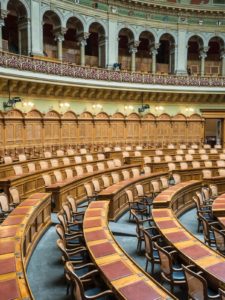The difference between policies, Regulations, and Acts
Policies
Most people experience policies on a day-to-day basis by means of interactions with private sector companies and government agencies which all form part of a democratic society. Policies may be internal or external (explicit) such as internal customer service policies that result in unique experiences at a restaurant or a bank for example, and explicit policies such as website privacy policies. A policy may also be written or unwritten – such as an unwritten policy when an attorney chooses to focus her practice on criminal cases or constitutional cases and discard other prospects. This type of policy is designed to improve a business to focus on one area of expertise.
Good policies provide easy direction and understanding of a company’s vision, mission, and values. For government, good policies are reasonable measures taken in the public’s interest and is the mechanism for developing a socio-economic system. Written or unwritten policies are documents not enforced through law and therefore are choices or plans formulated to shape environments within the existing laws.
Public policies are a set of rules which are meant to reflect and guide the plans of government departments. This is reflected in the word policymaker and a good example of public policy that aims to direct action as a whole is the National Development Strategy. A policy, however, is recognized in court as not more than a document or plan. This is because it has not been approved by parliament in the national assembly. Only once a document is approved through parliament is that document now applicable as law and, thus policy on its own, is applicable only if it is not in contradiction to anything written in law. This principle regarding policy is true for both government and the private sector and if the policy is in contravention of law, and this inconsistency is proven in court, the court has the power to strike down the policy.
Policymakers, in both government and business, need to be conscientious of the law when creating policy to maintain the trust culture that needs to exist between parties to succeed. As money is the currency of transactions, so is trust the currency of interactions. Trust is earned on capability traits (reliability and competency) and character traits (integrity and empathy) and these are earned from the crowd who are now more empowered with information than ever before. Rachel Botsman, the author of Who Can We Trust, argues that institutions require customers to take trust leaps to succeed and must have an overall trust culture with customers. A company such as Apple may have high capability traits but may need to focus on its character traits (such as its privacy policy) to propagate a high trust culture and be rewarded with trust leaps that provide institutions with the ability to move forward and improve. The same applies for government, such that policies can diminish the trustworthiness of the institution with the community through weak character traits.
It is said in “Public Law”* that policies must be applied with the following factors in mind:
- the policy itself must be lawful;
- the policy ought to be published, but if not published, the policy must not conflict with policy that is published;
- public bodies must be prepared to depart from a policy of a particular case justifies doing so (natural justice).
Illustrations of the legal differences are as follows:
Unlike laws, public policies are not automatically required to become available to the public before enforcement. A law is required to be processed through parliament and requires the public to be notified of enforcement, through the gazette, before becoming applicable. A similarity is identified with Securities by way of its requirements to be processed by the regulator and licensed. Regulation of Securities ensures all Securities are attested by the regulator to signal to the public that the Securities are in a way de-risked. The Securities Act, in turn, is a law accessible by the public so that there is a high level of trust amongst all participants. Similarly, laws are processed through parliament to ensure the laws are in the very best interest of society and which builds the cornerstone of trust in the democratic system. Unlike laws, public policies are not automatically required to become available to the public before enforcement. In consequence, this risk with public policy is that it can take effect in existence without the document having been rendered available to the public.
A further distinction associated with policy is the enforcement thereof. The Court has no authority adjudicating policy decisions unless the policy contravenes a law. The above outlines a key risk associated with public policy – being that it should not discriminate. In circumstances when the protection of the law is not directly available all that is left is the hope that the policy was applied fairly and indiscriminately. Public policy does not offer an appeal process because there should not be anything to appeal. However, society is not so symmetrical, and it happens that public policy overlaps with existing rights, such as licensing, that creates controversy for policymakers and the public to reconcile over.
An example of when a policy is in violation of the Law is seen in a Seychelles Constitutional Court ruling in 2019, where a landowner was prevented by a government policy from building an accommodation establishment on the land. When in court the Constitutional Court ruled that the person’s Constitutional land ownership rights can only be limited by a law and that law can only take affect for prescribed motivations. As the policy was not yet passed as law by parliament the judgment went in favour of the landowner. Even though the prescribed motivations may have been met by the policy neither those prescribed motivations nor the policy can be applied to limit the landowner’s Contitutional rights because those rights are law.*
Acts and Regulations
Acts and Regulations are both law and enforceable in court. Acts and Regulations are proposed by government and approved or dismissed by parliament before becoming enacted as law. The new law must be printed in the gazette as public information for the country to have knowledge of the laws applicable to them in the jurisdiction.
In terms of hierarchy of law, an Act is similar to the trunk of a tree and serves as the principal law from which regulation, or branches from the trunk, can form. An Act explains the purpose of that particular law, the agencies involved, and their objectives amongst other important details. An Act further includes the provisions under which Regulation can be created and approved through parliament with the purpose to become law.
Regulations are rules that structure the behavior within a given context. They are enforced by agencies such as the Financial Services Authority and Central Bank of Seychelles to limit the risk for customers when dealing with the financial private sector, and therefore improve trust between parties to enable interactions. Other regulators are the Department of Tourism and the Seychelles Licensing Authority who may also legislate regulations in the name of public interest.
Conclusion
The difference between policy and law is subtle but vital to grasp and define the contextual circumstances of our reality. For businesses, policy aligns the behavior of departments across an organization and serves as a master plan curating the company’s success. For government, policy is important because it is the construct of plans to improve the socio-economic environment.
However, purpose-driven policy that take years in the making to realize results are in the meanwhile debased by policies that serves as a quick solution and that occasionally does not take the law properly into consideration. Within companies, internal policy should be well scrutinised by its own management because there is a risk it may be discriminatory. Governments too, need to be more cognizant that although policy is attractive for its uncomplicated process, for this same reason it makes policy a risky instrument, and therefore should be cautious of their own policies and replace policies with laws wherever possible to enhance the trustworthiness of the institution and set policy in motion. Regulators often make external policies a requirement of licensing for this similar reason, that reason being that policies are subject to abuse by those that create them. Policies, especially internal, can be detrimental to the trust culture that an organisation needs to improve, and without trust, the currency of interactions deteriorates. It is fair to conclude that a policy that is not openly accessible to employees and the public, for whatever reason and timeframe, should not be in practice and is a signal of poor intent. A policy with true intent will take into consideration, before all else and without rationalisation, the rights of citizens represented by the constitution and other laws already in existence.
*Le Sueur, A., M. Sunkin and J.E.K. Murkens Public law: text, cases and materials. (Oxford: Oxford University Press, 2019) 4th edition [ISBN 9780198820284]
* Since this judgment the policy has been passed as law by parliament as a Regulation. This is the Tourism Development (Vertical Integration) Regulations,2019 and the Amendment in 2020











